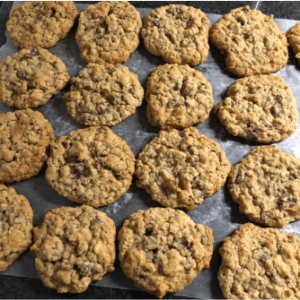What is Cinnamon Oil?
Cinnamon oil is an incredible liquid extract that packs a punch. Derived from the bark of cinnamon trees, specifically Cinnamomum verum and Cinnamomum cassia, these trees hail from the beautiful lands of Sri Lanka and China.
Now, let’s talk about its scent.
Brace yourself for a warm, sweet, and oh-so-spicy aroma that will transport you to cozy winter evenings and festive celebrations. The scent of cinnamon is unmistakable, evoking feelings of comfort and joy. Imagine a rich, inviting fragrance with a touch of earthiness and a subtle woody undertone. It’s like a warm hug from a dear friend, wrapping you in a sense of familiarity and contentment.


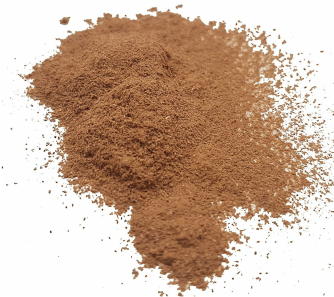
Active components of cinnamon oil:
-
Cinnamaldehyde (60% to 80%)
-
Eugenol
-
Linalool
-
Coumarin
-
Terpenes
-
Flavonoids
These components are responsible for cinnamon oil’s characteristic aroma, flavor, and various therapeutic properties, such as anti-inflammatory, antimicrobial, and antioxidant effects.
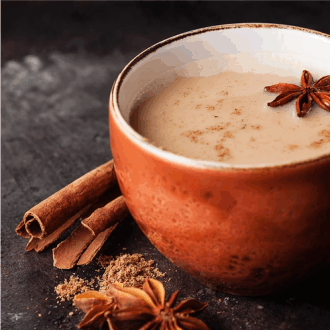
Is Cinnamon oil used in natural pest repellents?
Yes, cinnamon is used as a natural pest repellent due to its strong and pungent aroma. Cinnamon contains compounds such as cinnamaldehyde, eugenol, and linalool, which have insecticidal properties that repel pests such as ants, mosquitoes, and flies.
Cinnamon’s natural insecticidal properties make it a valuable ingredient in natural pest control products.
Cinnamon oil is an exceptional natural pest repellent that can help keep your home and garden free from pesky snakes.
Is Cinnamon Oil in Minus Bite Snake Repellent?
Yes, Cinnamon oil is one of the active ingredients in our all natural Snake spray.
Cinnamon is a versatile spice that is widely used in various industries due to its unique flavor, scent, and therapeutic properties.
Cinnamon Oil
Industrial Uses- Food industry: Cinnamon is a popular spice used in the food industry as a flavoring agent in baked goods, beverages, and confectionery products. It can also be used as a natural preservative and antimicrobial agent in processed foods.
- Cosmetic industry: Cinnamon is used in cosmetics and personal care products such as lotions, soaps, and perfumes due to its warm and inviting scent. It can also have antifungal and antibacterial properties that make it useful in treating skin conditions such as acne.
- Pharmaceutical industry: Cinnamon has various therapeutic properties, including anti-inflammatory, antioxidant, and antimicrobial effects, that make it useful in the development of pharmaceuticals and natural remedies. It can also be used as a natural flavoring agent in medicinal products.
- Aromatherapy industry: Cinnamon oil is commonly used in aromatherapy due to its stimulating and uplifting effects on the senses. It can be diffused or used topically in diluted form to relieve stress, boost mood, and improve cognitive function.
Benefits of Using Cinnamon Oil on the Skin at the right concentration
Antimicrobial: Cinnamon oil has natural antimicrobial properties that can help fight acne-causing bacteria and other harmful microorganisms on the skin.
Anti-inflammatory: Cinnamon oil has anti-inflammatory properties that can help reduce redness, swelling, and irritation on the skin.
Skin rejuvenation: Cinnamon oil can help improve blood circulation and stimulate collagen production, which can help reduce the appearance of fine lines, wrinkles, and other signs of aging.
Exfoliation: Cinnamon oil can act as a natural exfoliant, helping to remove dead skin cells and promote smoother, healthier-looking skin.
Antioxidant: Cinnamon oil is a rich source of antioxidants, which can help protect the skin from damage caused by free radicals and environmental stressors.
Aromatherapy: Cinnamon oil has a warm and comforting scent that can promote relaxation and reduce stress and anxiety.
Timeline of the Usage of
Cinnamon Essential Oil- 2800 BC: Cinnamon is first mentioned in Chinese writings, where it was used for a variety of medicinal purposes.
- 1500 BC: Egyptians used cinnamon for embalming and as a flavoring in food and drinks.
- 500 BC: Cinnamon was a prized commodity in ancient Greece and Rome, where it was used for its medicinal properties and as a flavoring in food and beverages.
- 16th century: European explorers discovered cinnamon in Sri Lanka and began importing it to Europe, where it became a popular spice and medicine.
- 17th century: Cinnamon was used as a natural remedy for a variety of ailments, including digestive issues, respiratory problems, and menstrual cramps.
- 19th century: Cinnamon oil was extracted for the first time using steam distillation, making it more widely available for medicinal and culinary use.
- 20th century: Cinnamon oil was used in the development of synthetic fragrances and flavorings, but interest in natural and alternative remedies led to a renewed interest in cinnamon oil as a natural remedy.
- Today: Cinnamon oil is used in a variety of industries, including food and beverage, cosmetics, and aromatherapy. Its natural and therapeutic properties make it a popular ingredient in natural health and beauty products. Additionally, it is still used as a traditional remedy for a variety of ailments in many cultures around the world.
Reading Time…Cinnamon Oil
It's Easy To Make Cinnamon Oil!
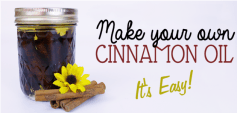
Sprinkle Cinnamon Near Your Front Door

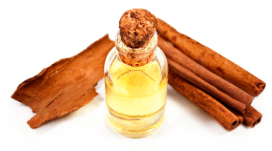
References:
Singh G, Maurya S, de Lampasona MP, Catalan CA. A comparison of chemical, antioxidant and antimicrobial studies of cinnamon leaf and bark volatile oils, oleoresins and their constituents. Food and Chemical Toxicology. 2007;45(9):1650-1661.
Shan B, Cai YZ, Brooks JD, Corke H. Antibacterial properties and major bioactive components of cinnamon stick (Cinnamomum burmannii): activity against foodborne pathogenic bacteria. Journal of Agricultural and Food Chemistry. 2007;55(14):5484-5490.
Cinnamon Oil [Internet]. Natural Medicines Comprehensive Database. [cited 2022 Apr 24]. Available from: https://naturalmedicines.therapeuticresearch.com/databases/food,-herbs-supplements/professional.aspx?productid=330.
Ranasinghe P, Pigera S, Premakumara GA, et al. Medicinal properties of ‘true’ cinnamon (Cinnamomum zeylanicum): a systematic review. BMC Complementary and Alternative Medicine. 2013;13:275.
Jayaprakasha GK, Rao LJ. Chemistry, biogenesis, and biological activities of Cinnamomum zeylanicum. Critical Reviews in Food Science and Nutrition. 2011;51(6):547-562.
Rao PV, Gan SH. Cinnamon: A Multifaceted Medicinal Plant. Evidence-Based Complementary and Alternative Medicine. 2014;2014:642942.
Grzanna R, Lindmark L, Frondoza CG. Ginger—An Herbal Medicinal Product with Broad Anti-Inflammatory Actions. Journal of Medicinal Food. 2005;8(2):125-132.
Kwon YI, Apostolidis E, Shetty K. Evaluation of pepper (Capsicum annuum) for management of diabetes and hypertension. Journal of Food Biochemistry. 2008;32(5):768-783.
Koppikar SJ, Choudhari AS, Suryavanshi SA, et al. A comparative study of antioxidant potential of selected spices. International Journal of Basic and Applied Sciences. 2012;1(4):605-612.
Prasad KN, Yang B, Dong X, et al. Flavonoid contents and antioxidant activities from Cinnamomum species. Innov Food Sci Emerg Technol. 2009;10(4):627-632.


